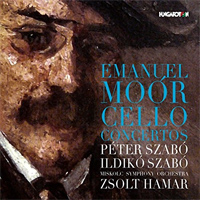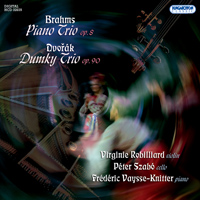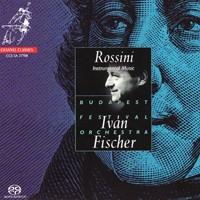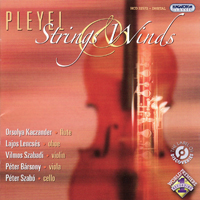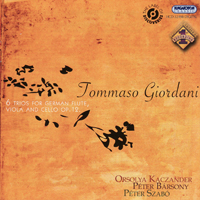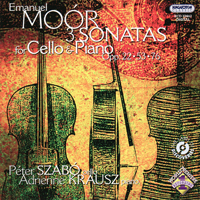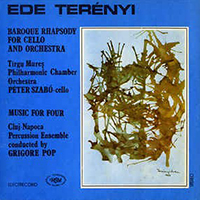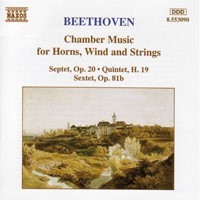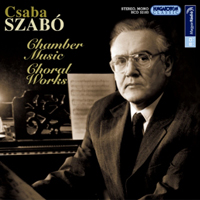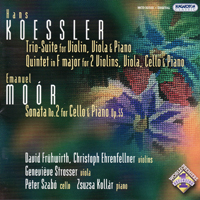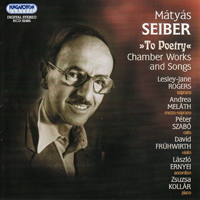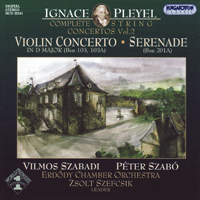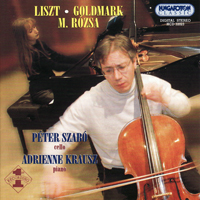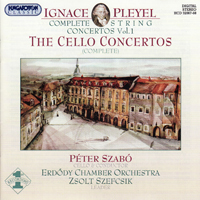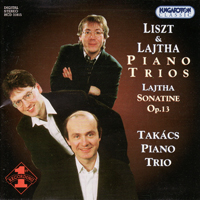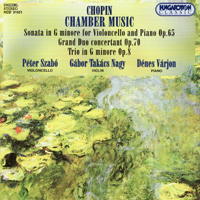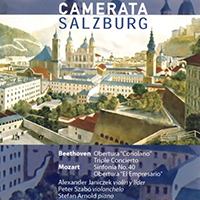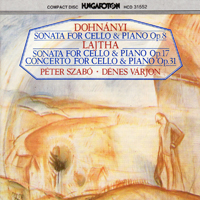A dozen less one cello concertos
Nowadays, cellists have nothing to complain about as far as repertoire is concerned; re-discovered cello pieces of the music literature appear one after the other, both on concert platforms and on CDs. Thanks to Hungaroton, we find Ignace Pleyel's (1757-1831) complete cello concertos on a double-CD album.
From another double disc release, we can listen to Giovanni Battista Cirri's (1724-1801) six concertos. The former is signed by the Erdődy Chamber Orchestra, who rendered great service in the exploration and presentation of XVIII-XIX century Hungarian-related compositions, and Péter Szabó, in his capacity as soloist and conductor. The recording of the Cirri concertos was produced by our leading early music specialist, Balázs Máté and under his direction, the Baroque chamber ensemble the Aura Musicale, playing historical instruments. Two years ago, Benedek Csalog recorded a memorable album presenting Quantz's flute concertos with the same ensemble, led by Zsolt Szefcsik. They also earned several foreign rewards and achieved major success with their Michael Haydn- and Hummel-recordings and concert hall premiers alike.
The cello, which was banned from the Viennese church music from 1740 to 1780 on account of sounding "too erotic", flourished firstly in other regions of Europe. It became so popular so quickly that it soon replaced the viola da gamba on the concert scene. This was the time when Cirri became prominent as a performing cello virtuoso throughout Europe. But the Austrian-born genuine entrepreneur, Pleyel with his rich ideas is a more interesting figure. Joseph Haydn, who was his tutor in Kismarton, always considered him one of his favourite students. At that time, the young Pleyel found a generous supporter in the person of the Count Erdődy, who not only covered the expenses of his studies, but later also employed him as a conductor. From the 1780's, Pleyel sparkled in all the fields of music: he composed with diligence, he organized concerts and gave lessons. Settling in Paris, he founded a music publishing house, whose first product was a release of his master, Haydn's complete string quartets. His notes were welcomed by all. In his piano factory, legendary keyboard wonders were constructed. The elderly Pleyel was highly respected in the French capital, where his compositions were performed regularly in society. Revised versions and transcriptions appeared of his popular pieces. Pleyel, a man of the modern world, picked up the signals coming from the audience and derived new inspiration from their demands. He did not mind borrowing from his previous pieces and transferring parts into the new ones, "remixing" them. This he did without diminishing the quality. This is what we become convinced of, listening to Pleyel's colourful concertos blending virtuosic sections with mysteriously emotional parts on this first-class recording.
GYÖNGYI KÁLMÁN
Translation by Susan Kapás
Magyar Nemzet
2003


